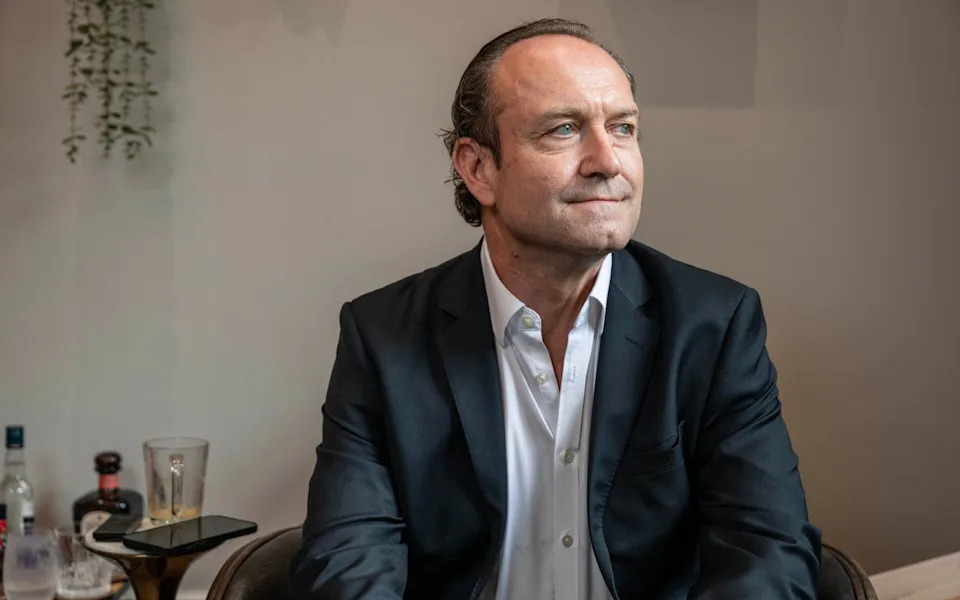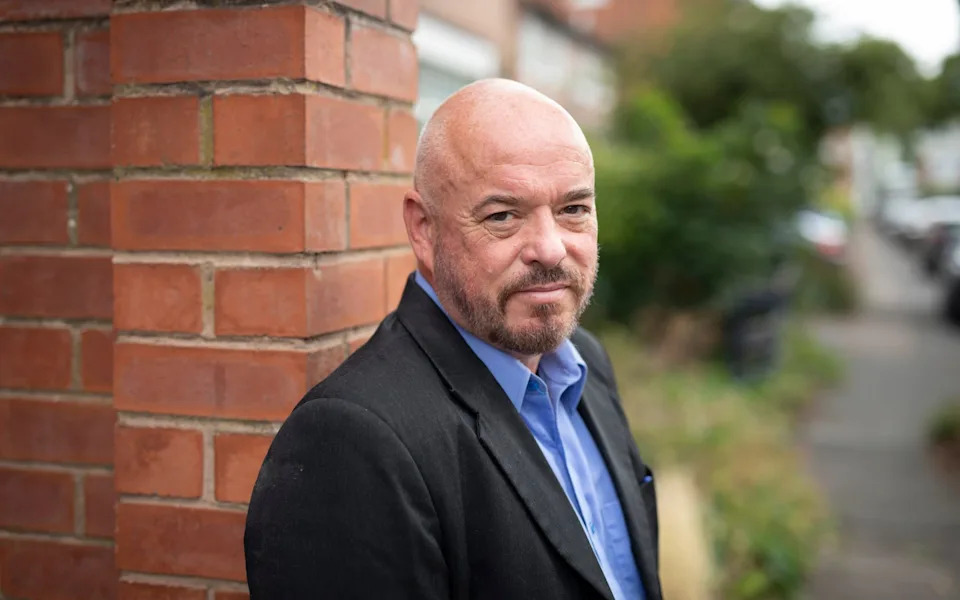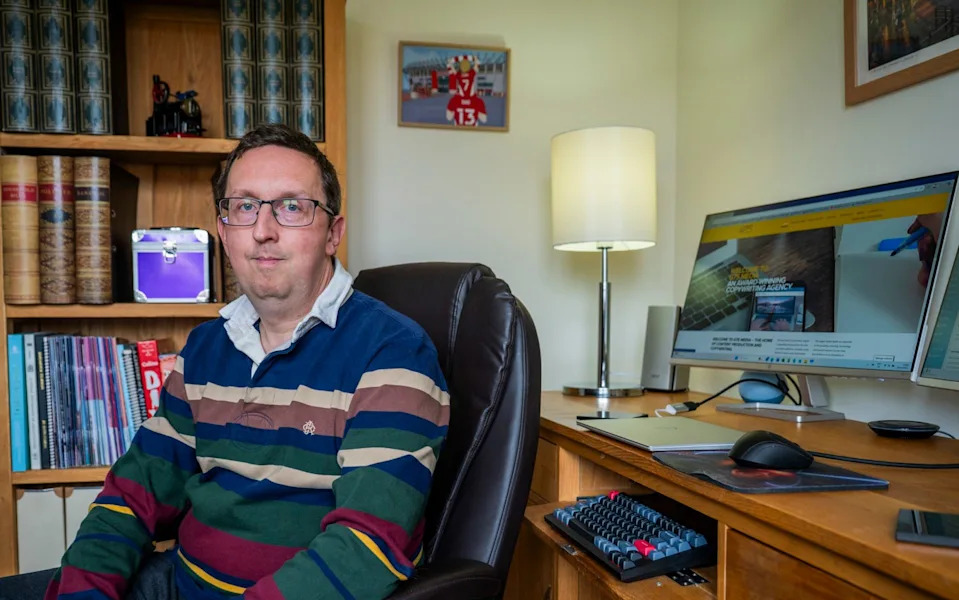“What is the point of me? Will my wife and son ever be able to look at me with pride?”
Geoff Ho’s painfully candid words capture the depth of his debilitating low mood, the result of months of unemployment and some 250 rejections to his committed job applications. And the journalist and editor, who was widely praised for taking on terrorists during the London Bridge attack in 2017, is by no means alone in feeling this way.
When he wrote about losing his job and his subsequent struggle to find another one for The Telegraph last month, his experience told the tale of a disturbing trend. A “hollowing out” of middle-class, white-collar jobs like his has hit the middle-aged, often in middle management, hard, leaving many devoid of confidence and unable to re-enter the workforce.
A storm of economic factors, plus the increasing prevalence of AI, has created what experts are increasingly seeing as a specifically white-collar jobs recession.
The latest Office for National Statistics data shows UK job vacancies have fallen for 36 consecutive months, breaking the previous record of 16 set during the 2008 global financial crisis. Over the past three years, redundancies have almost doubled from 55,000 people per month to 114,000, with the impact falling largely on middle-aged and older workers – all during a period of (albeit slow) economic growth.
“We’re heading for a jobs crisis like the 1980s”, says James Reed, chairman and chief executive of Reed recruitment agency. “Lots of people are going to be left behind as a result. If we see the hollowing-out of white-collar work it will affect millions of people, their living standards and the government’s tax take.”
Here, Telegraph readers who saw echoes of their own experiences in Ho’s account share their seemingly never-ending battles for work.
‘I’m not ill, I’ve got a lot to offer. Why am I being excluded from the workforce?’
Mike Forsdike, 54, is a creature of habit, so he continues getting up at 5.30am even though he has been out of work since last May. He goes for a run. But despite his best efforts, he can’t help feeling affected by the sight of people heading to work near his central London home. He sounds admirably positive most of the time, but a note of frustration creeps into his voice when he talks about this.
“I think to myself, ‘They’re all going off to jobs, why aren’t I?’ Because I’m not ill, I’m not on benefits. Why am I being excluded from the workforce? You’re perfectly healthy, you’ve got a lot to offer, but you’re not in the economic loop.”
Forsdike, a construction manager with some 30 years’ experience managing both residential projects and major commercial ventures including Tottenham Hotspur’s stadium, has never been out of work before. Though he has been made redundant, he was always quickly “snapped up.”

Mike Forsdike, 54, a construction manager with 30 years’ experience, faces prolonged unemployment despite his skills amid a stalled market – Julian Simmonds
This time is different. He muses: “You see Angela Rayner on a building site and she’s had a hard hat on longer than me in the past year.”
He says that even in usually buoyant London, construction is “totally dead,” despite what he calls “Whitehall’s rhetoric” about building infrastructure and homes. People aren’t buying, and “there isn’t any kind of business confidence,” he adds.
But he believes people of his age, in senior positions, seem particularly impacted. “I’ve got friends who are in the same situation, you know, sort of director level,” he explains. “People like me are sitting at home with the skills and experience; I’ve got a degree, I’m chartered.”
He admits that after sending out “a few hundred” job applications, he started dumbing down his CV. “You’re reducing your actual knowledge and experience [in case people think], ‘He’s too qualified’”.
While he doesn’t believe his role is directly being eroded by AI and technology, he says the recruitment and sifting process is affected by it. The interviews he has secured have mostly been conducted via Teams or Zoom, “which is not the best because I feel you’ve got to meet people […] Otherwise you feel you’re just another one in the numbers.”
His partner works, but he’s starting to tighten his belt. There will be no holidays this year. In truth, he says, he doesn’t feel he deserves one. “Every day is a weekend day,” he adds, without enthusiasm.
‘I’ve applied for 600 jobs – now I’ve had to cash in a pension’
When asked how he is, Andy Kettles, 58, cannot hide his despondence. “SSDD”, he replies – “same s—, different day.” It is, sadly, how the Nottingham project manager has felt since leaving his job at a tech company last July, despite his best efforts to stay positive.
He has also worked in property management and financial services, so he has a wealth of experience. Yet, since leaving his job for a planned sabbatical, expecting to find another role within a few months, he has applied for at least 600 jobs. Since January, he has been invited to only 16 interviews, around a four per cent hit rate, he says.

‘Same s—, different day’ is how Andy Kettles, 58, sums up his relentless job search – Andrew Fox
He blames, in part, pessimism about the economy and the Government’s approach, including the increase in employer National Insurance contributions.
“Business confidence fell because Rachel Reeves and Keir Starmer started bad mouthing the economy”, he says. But he also believes AI is taking over certain administrative elements of his role, and he only sees that getting worse.
He admits it also comes down to his age.
“I do know a number of people in similar roles to me who are in their mid-thirties to mid-forties who have lost their jobs during the past year,” he says. “But most […] have been able to secure roles within about four to five months.”
He lives alone, but his financial situation now means he has had to cash in a small pension. He admits he now avoids speaking to friends and family, in case they ask “how the job search is going”.
“Sometimes, when I get up in the morning, [I] just think ‘Oh god, another day of this’,” he admits.
‘It’s embarrassing to be struggling so badly’
Neil Cumins recently applied for a job that attracted 455 applicants. He didn’t get an interview. The 47-year-old, a freelance content writer for businesses and online publishers, has run his own company since 2007, writes for clients around the world, and has won awards – yet now spends an increasing proportion of his week without work. That time is dedicated to applying for new contracts and commissions.
“It feels like a second job,” he says.
In 2023, his profits dropped by around a quarter; this year, they’ve fallen by another 10 to 15 per cent.
“This year is looking like it will be the worst for 15 years in terms of turnover,” he says. “I started 2024 with 12 clients, and I ended it with seven. And some of the clients I do have appear to be reducing the amount of work distributed.”

Neil Cumins, 47, a freelance writer and business owner, faces dwindling work and income amid AI changes disrupting online publishing – Chris Watt
Thankfully, his wife has a full-time job in Carlisle, where they live. While they’re “reining in” spending, and trying to insulate their eight-year-old son from the impact, he still feels “embarrassed”.
“It’s embarrassing to know you’re struggling so badly, and when you’ve applied for 200 roles without landing a single paid piece of work, it really preys on your mind”, he says.
The wider economic climate is not helping, but specifically he points to AI and changes within Google which have impacted online publishers.
“There’s been a dramatic fall in online traffic after some Google algorithm changes about 18 months ago which was quite catastrophic for a number of my clients,” he says.
“Basically, they had to suspend all new content production because the income they were generating from their websites dried up almost overnight, and now things are going to get even worse, because Google is going to start turning off the 10 blue links that have driven traffic to third-party websites.” These are the hyperlinks which have traditionally appeared at the top of all Google search results.
“They’re going to try and publish things themselves as AI overviews,” he explains, “and stop directing traffic to these sites altogether, which means an awful lot of the internet as we know it will shrivel up and die.”
He adds that AI also threatens to replace human-generated content.
“AI is creating an awful lot of content that makes it very hard for written content to get through,” he says, despite the quality of the AI content being extremely poor. “It’s part of my job to write about new technologies and every day I encounter AI results that are factually incorrect or misleading,” he says.
“When people are using platforms like ChatGPT there’s a certain level of excitement content is being generated for free, but there’s nothing new being produced. It’s just regurgitating existing content.”
When he climbs into bed these days, low mood can strike. “While I understand rejections aren’t intended to be personal, it’s impossible not to take them personally,” he says.
“There have been weeks where I’ve been turned down for three roles in one afternoon and it’s hard to go to bed and feel like you’ve been productive and constructive that day.”
